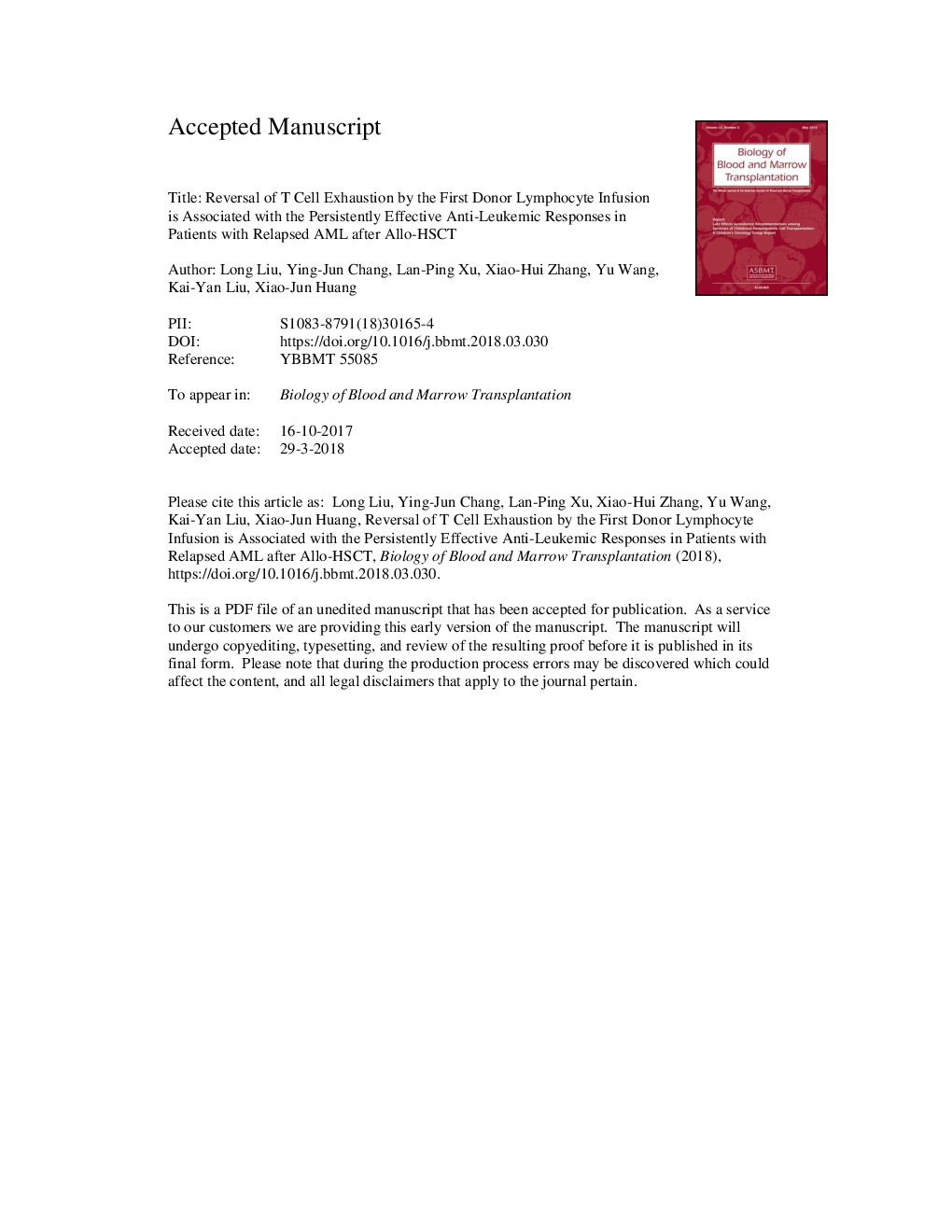| Article ID | Journal | Published Year | Pages | File Type |
|---|---|---|---|---|
| 8429690 | Biology of Blood and Marrow Transplantation | 2018 | 35 Pages |
Abstract
Donor lymphocyte infusion (DLI) is an effective approach to treat acute myelogenous leukemia (AML) relapse after allogeneic hematopoietic stem cell transplantation (allo-HSCT) that significantly improves the survival of relapsed patients. However, the mechanism of an effective antileukemic response following DLI in AML relapse remains elusive. Here, we investigated the role of T cell exhaustion in AML relapse after allo-HSCT in prospective cohorts of 41 patients with the first AML relapse and 41 nonrelapsed AML control subjects after allo-HSCT and determined whether DLI exerts effective antileukemic effects by reversing T cell exhaustion in the relapsed cohorts by detecting the phenotypes and functions of T cells using flow cytometry. We found that both CD4+âand CD8+âT cells experienced exhaustion with upregulated coexpression of PD-1 and Tim-3, and functional impairments in cytokine production, proliferation, and cytotoxic potentials. The reversal of T cell exhaustion by the first DLI is associated with persistent complete remission in relapsed AML patients. In addition, the reversal of T cell-exhausted status after successful DLI in bone marrow was concurrent with the mitigated inversion of CD4/CD8 T cell ratio. In conclusion, our study shows a clinical correlation between T cell exhaustion and AML relapse after allo-HSCT, and uncovers the role of reversing T cell exhaustion in the antileukemic response by DLI and identifies possible immunological markers to evaluate and predict the graft-versus-leukemia effects induced by DLI.
Keywords
Related Topics
Life Sciences
Biochemistry, Genetics and Molecular Biology
Cancer Research
Authors
Long Liu, Ying-Jun Chang, Lan-Ping Xu, Xiao-Hui Zhang, Yu Wang, Kai-Yan Liu, Xiao-Jun Huang,
